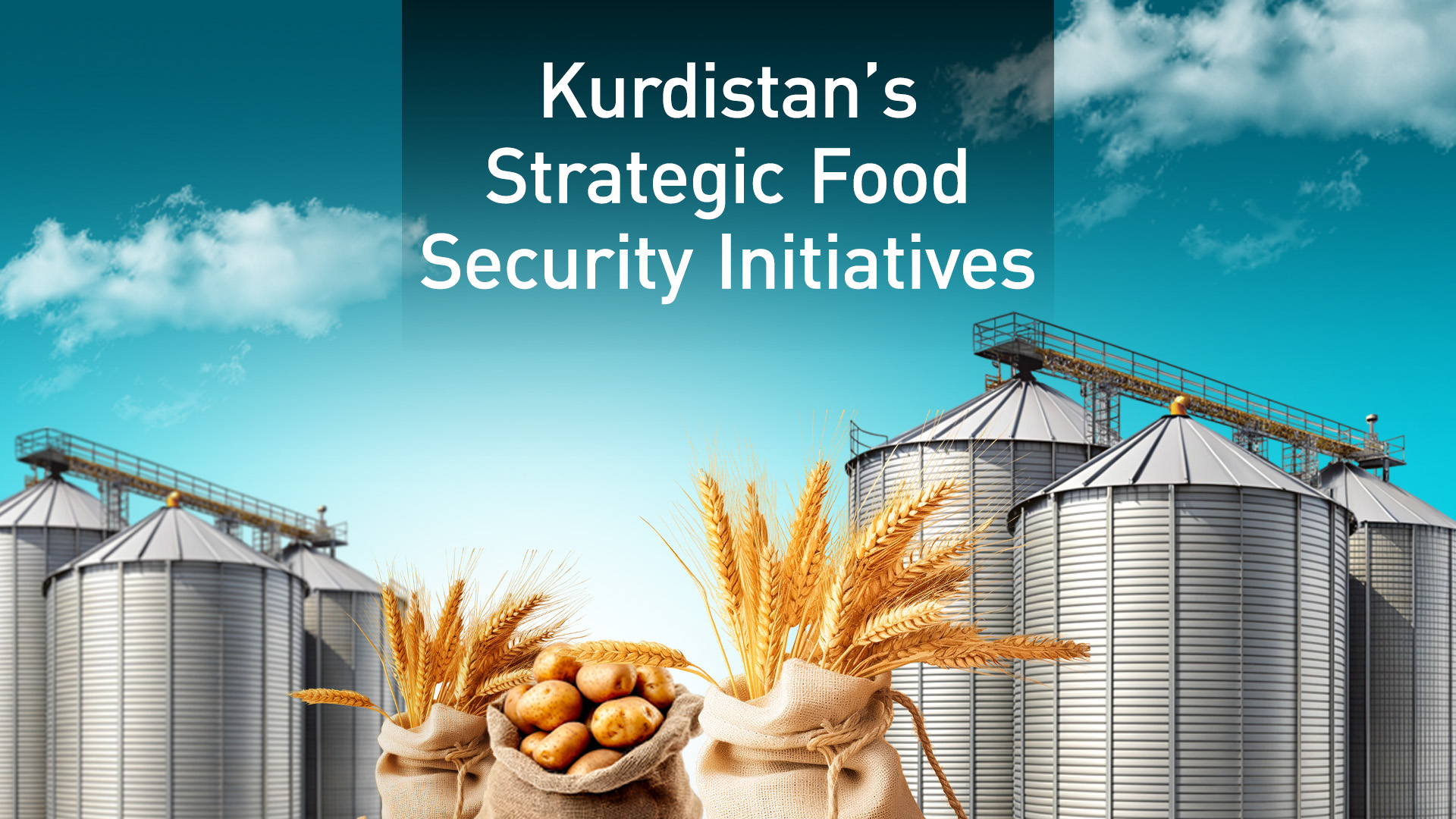Ninth Cabinet Advances Kurdistan’s Agricultural Resilience with Strategic Food Security Projects
The KRG's ninth cabinet has revolutionized Kurdistan's agriculture through strategic investments in infrastructure and exports. By empowering farmers and ensuring food security, these reforms are building a competitive, sustainable agricultural economy for the region's future.

By Ahora Qadi
ERBIL (Kurdistan24) – In a decisive push to strengthen food security and support domestic agricultural production, the ninth cabinet of the Kurdistan Regional Government (KRG) has launched and completed a series of strategic projects, including large-scale grain siloes, cold storage facilities, and plastic greenhouses across the Region.
Major Investment in Food Chain Infrastructure
Over the past five years, the ninth cabinet has prioritized efforts to fortify the Region’s food supply chain through local production, industrial support, and efficient storage networks.
In that context, the government constructed nearly 600 cold storage units with a collective capacity of 75,000 tons, allowing farmers and producers to preserve perishable goods for domestic consumption and export. Moreover, 30,000 plastic greenhouses were established to help diversify and expand year-round cultivation, benefiting over 3,813 local farmers.
Additionally, 11 specialized factories supporting various agricultural products—particularly potatoes—and seven potato processing facilities have resumed or begun operations during this period.
Record Gains in Cultivation and Export
The Region has significantly increased its agricultural output, with the cultivation utilization rate rising from 1.8% to 10%. As a result, Kurdistan has successfully exported high-demand agricultural products—including rice, sumac, tahini, pomegranates, apples, mushrooms, and potatoes—to the United Arab Emirates, Gulf markets, and Europe.
Silo Projects Across All Provinces
In a bid to ensure long-term grain storage and stabilize strategic reserves, the ninth cabinet oversaw the launch of silo construction projects in all four provinces:
· Erbil (Qushtapa): 40,000-ton capacity; 21 billion dinars.
· Sulaimani (Kalar): 40,000-ton capacity; 20 billion dinars.
· Duhok (Bardarash-Ruvia): 40,000-ton capacity; 18 billion dinars.
· Halabja: 75% completed; 40,000-ton capacity; 26 billion dinars.
· Zakho: 40,000-ton capacity; implementation pending.
In total, the projects represent a combined investment of 85 billion dinars and will yield 200,000 tons of storage capacity, vastly improving food security preparedness in the Region.
Surge in Industrial Activity and Licensing
In parallel with its agricultural agenda, the cabinet has also actively supported economic diversification by streamlining licensing processes. Since taking office, it has issued 1,650 new industrial permits, bringing the total number of registered factories in the Kurdistan Region to 4,743.
Company Registrations Surge
Under the ninth cabinet, the KRG has registered a remarkable number of companies—reflecting growing investor confidence and improving regulatory frameworks:
· Local companies registered during the ninth cabinet: 11,279 (total: 33,861).
· Foreign companies: 257 registered during this term (total: 3,486).
· Baghdad-based companies operating in the Region: 339 registered during this term (total: 1,237).
· Overall new company registrations under the ninth cabinet: 11,875, bringing the total to 38,584.
Opening Global Markets to Kurdish Farmers
In addition to strengthening internal production, the cabinet placed significant emphasis on securing international market access for local farmers. The government has taken extensive steps to facilitate the export of Kurdish agricultural products to foreign markets.
On 21 September 2024, during the inauguration of the Slevana Wheat Marketing Plant in Zakho, Prime Minister Masrour Barzani underscored the cabinet’s commitment to securing local and foreign markets for Kurdish farmers’ harvests.
“Today, the products of our farmers are reaching markets in Arab countries and Europe,” Barzani said. “But it is equally important that our farmers maintain high product quality and modernize their cultivation practices based on scientific and contemporary methods.”
This vision has guided the cabinet’s policies, leading to tangible outcomes in trade and export development.
A Strategic Vision for Sustainable Growth
The ninth cabinet’s consistent investment in siloes, cold chains, greenhouses, and market access has ushered in a new era of agricultural empowerment in Kurdistan. These efforts, coupled with a clear export strategy, not only secure food for the Region but also position Kurdish produce competitively on the global stage.
The government’s unwavering commitment to empowering farmers, creating sustainable livelihoods, and building a modern agricultural economy continues to shape a resilient and food-secure Kurdistan.